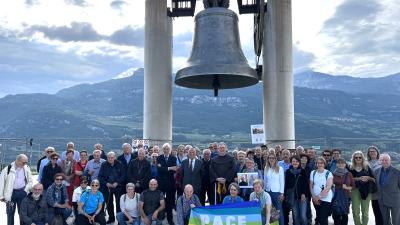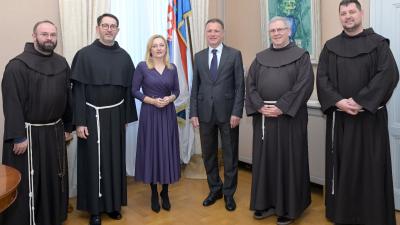
On the morning of 26 May, the Custos of the Holy Land, fra Francesco Patton, took part in one of the most eagerly awaited sessions of the last day of the Festival of the Economy in Trento (Italy), now in its 19th year.
“Quo Vadis? The dilemmas of our time” was the subject this year: with the spotlight on wars, the climate crisis, the ecological transition and the impact of Artificial Intelligence on the future of people, work, communities and democracies themselves.
Artificial Intelligence and information
These questions linked to Artificial Intelligence were at the centre of the Custos’s address to the Festival. Fra Patton warned against the risk that these new instruments become dominant in fields such as those of the military, justice and information.

The other speakers at the round table also dwelled on information, highlighting the fundamental risk of an increase in “fake news”, a deformation of reality to make it functional to one’s own point of view and interests.
Ethics and professionalism at the centre
The Custos of the Holy Land (also in his capacity as a member of the association of journalists) reminded the many journalists in the room of their duty not to trust news from a second or third source, but to “wear out the soles of their shoes, go into the field, meet people, breathe in the atmosphere to understand what they want to write about.”

In this way, fra Patton concluded, “machines will never be able to replace the work of journalists, but they are required to study more, train more, have a greater critical capacity, more personal conscience and a greater professional and civil ethic.”
A number of politicians and members of the Italian government also took part in the Festival of the Economy in Trento, including the Prime Minister, Giorgia Meloni, as well as the President of the Italian Episcopal Conference, Cardinal Matteo Zuppi, and two Nobel Prizewinners: Michael Spence (Nobile Prize for Economics in 2001 ) and Muhammad Yunus (Nobel Prize for Peace in 2006).
Giorgio Lunelli






